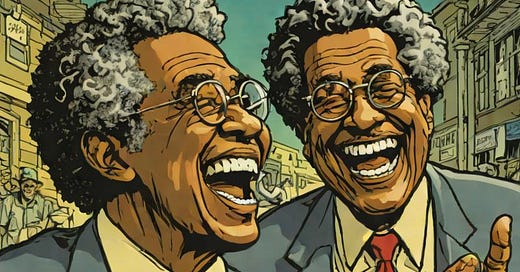

I once had a friend who lived in the basement of his family’s home. He had it made as far as living accommodations. His basement, which spanned the entirety of the house, was split across the middle of the house long-wise by a supporting wall. One side contained storage and a ping pong table. The other side, where he lived, was a furnished rec-room with a pool table and a bar. Bookcases sectioned off his sleeping quarters on the far end. There he had the usual bedroom furniture with posters of pop stars all over his walls. I would visit him often, and we listened to his extensive disco and rock collection. He had the best stereo system, which he was permitted to play as loudly as he wanted. This was in the late 1970s. It was with him that I first heard the sounds of ABBA, the Bee Gees, Donna Summer, Pat Benatar, the Eagles, as well as countless other disco-era stars I could not name now.

In the early years of our friendship, we played pool and ping pong and drank iced tea. As we grew older, we drank beer. There were many good times, but sometimes it wasn’t so good. Towards the end of our times together, I witnessed him quaff a fifth of whiskey within an hour or so. Later, the place was often filled with the scent of burning incense, meant to disguise the use of his other escape from reality.
He was a glasses-wearing, short, effeminate sort of guy who took after his mother. He looked like her, spoke like her, walked like her. Only a replica of his father’s prominent nose at the center of his face betrayed any other part to my friend’s genetic makeup. He was teased in school and kept to himself. Prior to meeting him, I saw him a few times in the neighborhood and thought him odd. But when my parents became friends with his parents (we thereafter had Thanksgiving and Easter dinner together almost every year), I looked past his oddness and became his friend. While he was weird, I was reserved and quiet. I was not teased much mainly because I was so ordinary. And I think my friend spotted this as one of my weaknesses.
One night he accused me of not knowing anything about the world because I had it so good.
I remember being taken aback by such an accusation. The implication was that in order to understand the world properly, to be authentic, we had to experience some kind of brokenness and suffering. We could not live in a bubble. My family, to him, was “1950s sitcom” perfect. Within a devout Catholic family, I had a good father with an interesting job in downtown Washington D.C. and a wonderful mother who did everything for us. I had the gift of having brothers. We lived and experienced everything together—from opening our presents together on Christmas Eve to walking to school each day. We were never lonely.
But I was annoyed with him. Here he was accusing me of having it too good. He had a family just like mine, I reasoned. He had a mother, a father, and a little sister. He lived in a middle-class neighborhood. He had the presumption to assume that I had no real struggles in life. By the way, don’t get the idea that this was at all a breaking point for our friendship, just something I think he helped me to understand, even if he did not have it all completely correct.
As we got older, and went to college, we saw less and less of each other. As the years passed, I recognized along the way that he was right about the “bubble” aspect of my life. While my life was not perfect or free from suffering, it was led in the most ideal setting possible in this world. My sufferings, mostly internal, were tolerable, were dealt with, were even character-building because I was living in a loving family that was there for each other. My friend, on the other hand, lived in a family that I learned later was very broken. I’m not here to disclose all of those details of his life—and I certainly do not know all of it. Whatever they were, his struggles, both internally and externally, proved far greater than he could face. It's already been three decades ago that he committed suicide, overdosing on his medication. I’m certain that his motive, if it was suicide, was to only end his misery. How intentional or culpable he was for this action is only for God to determine.
As the years have passed, I regret that we had grown apart and that I was not even available to attend his funeral. I had since gotten married and moved away, and was actively working to recreate what I had as a child for my own kids. I was too busy building my own new bubble.
I have since come to realize that while we all have our individual sufferings, there are differences in the way in which we experience them. These are distinguished by our personal disposition and by how much we can personally handle pain, both physical and psychological. Added to that is the level of the stability that we have in our lives. Do we have that network of family and friends that can support us in bad times? Do we have a faith life that can provide a meaning to our suffering? One that matches a reality of this world, that pain and suffering are an undeniable part of it. That no one is entitled to a suffering-free life. That there are rewards beyond our wildest imaginations awaiting us if we can only endure to the end.
I wish I had been there for my friend. Even to quote from the Book of Job:
Is not man's life on earth a drudgery?
Are not his days those of hirelings?
He is a slave who longs for the shade,
a hireling who waits for his wages.
…and an answer that, in Psalm 147:
Praise the Lord, who heals the brokenhearted.
He heals the brokenhearted
and binds up their wounds.
He tells the number of the stars;
he calls each by name.
I pray for my friend often. I hope he has found the peace of God’s mercy.
















That's wrenching and lovely and awful. What a beautiful memorial to your friend, though. 💜
Alec, this is a tough but wonderful account. I believe you touched a universal chord with this piece.